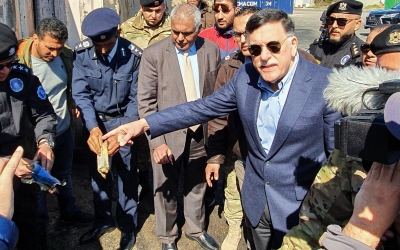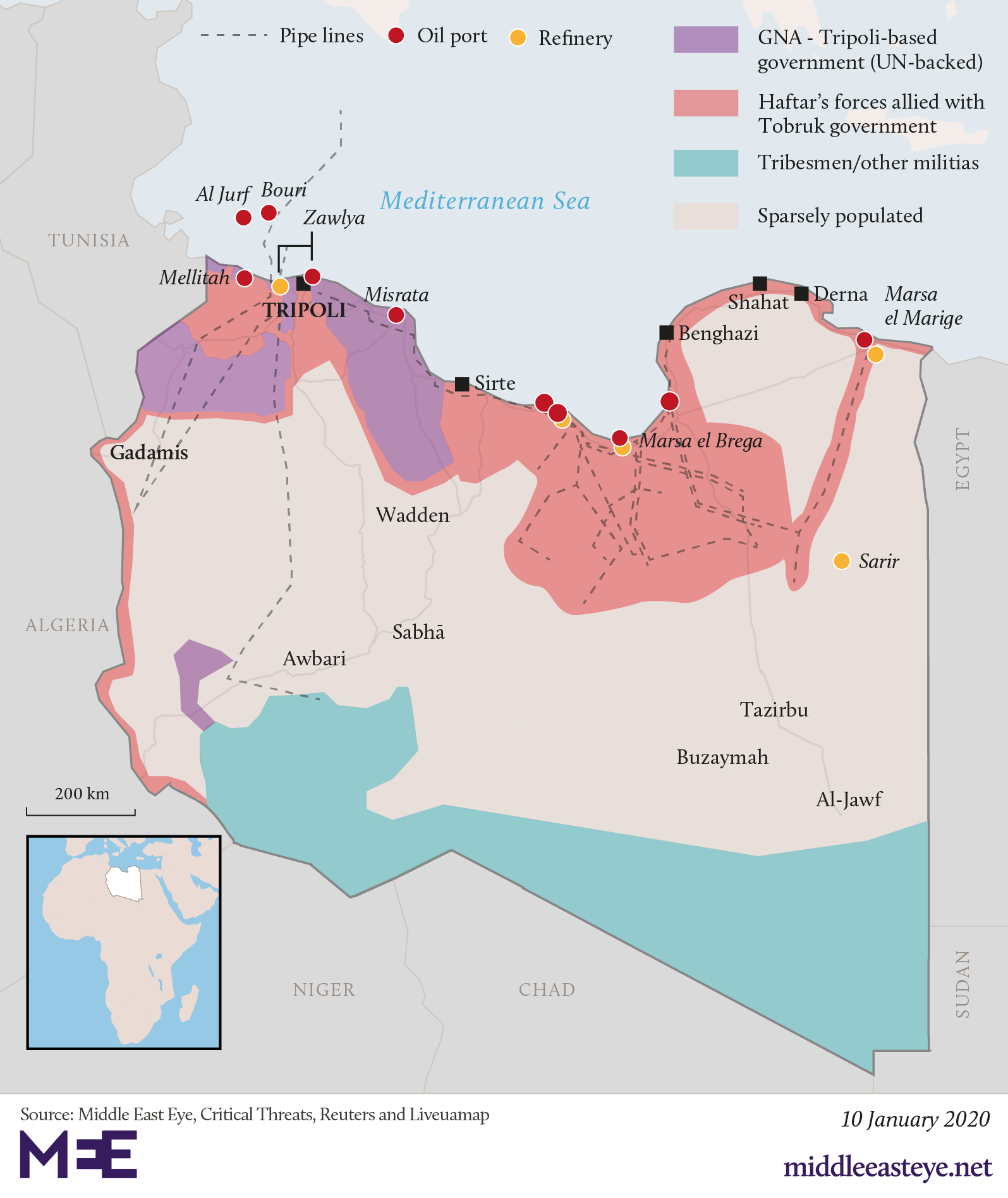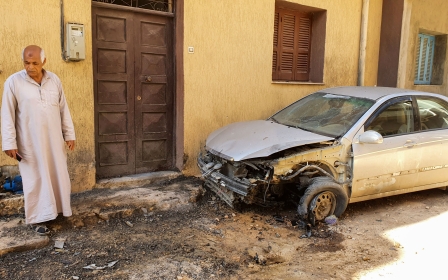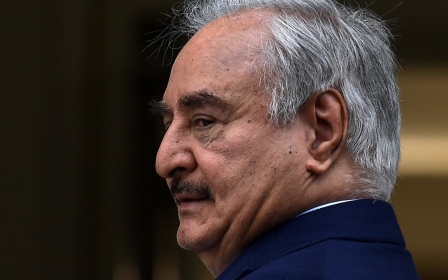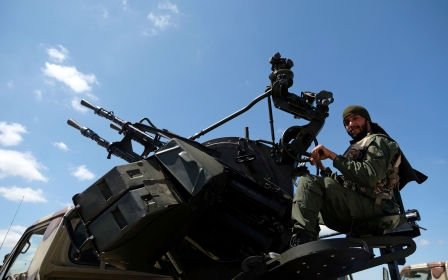Libya's warring sides pull out of UN-led Geneva peace talks
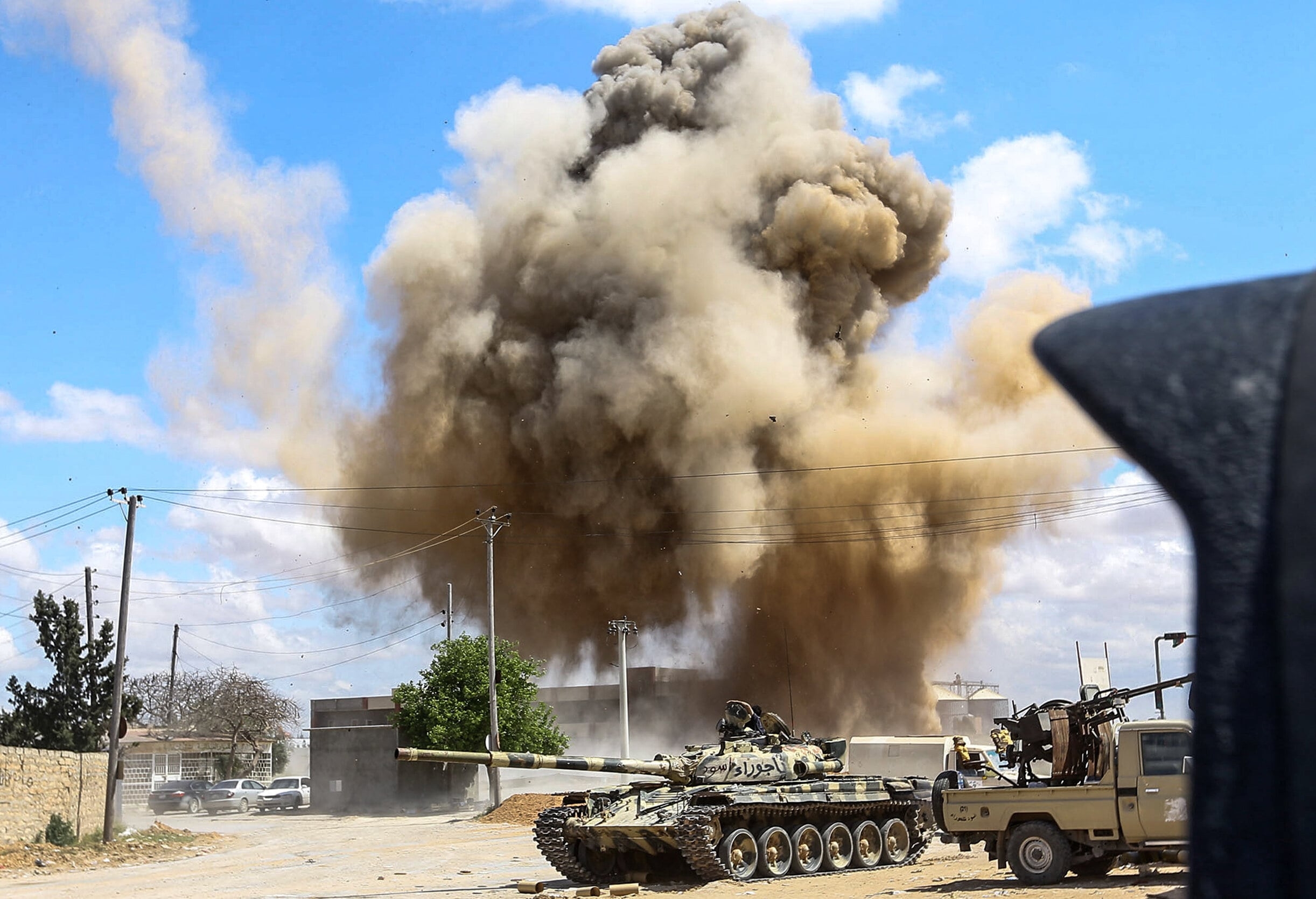
Libya's warring sides have suspended their participation in United Nations-sponsored peace talks in Geneva that are aiming to bring an end to more than 10 months of fighting.
Ahmaida Erouhma, who heads the eastern government's committee, said on Monday that the UN only approved eight of 13 names his side put forward for the delegation, thus leading to their refusal to participate.
'Children have been orphaned because of the aggression perpetrated by the war criminal Khalifa Haftar'
- Fayez al-Serraj, prime minister of Libya's GNA
Then, the internationally recognised Government of National Accord (GNA) in Tripoli said it would not participate until progress was made on military negotiations.
"It is in light of conclusions [from military discussions] that the high council would decide to take part or not in political dialogue," the Tripoli government's high state council said.
The suspension in talks came despite assurances by a UN spokesperson that negotiations would still go ahead.
The UN had planned to bring together representatives from both sides of Libya's conflict on Wednesday to end the fighting over Tripoli, and include a dialogue that encompasses military, political and economic strands.
Earlier on Monday, the UN Libya mission said in a statement that senior military figures from both sides agreed to submit a draft ceasefire agreement to their leaderships before meeting again next month.
Libya has been in conflict since a 2011 NATO-backed uprising killed longtime leader Muammar Gaddafi. Since then, two rival armed factions have emerged in the country: the UN-recognised Government of National Accord (GNA) and the Libyan National Army (LNA), an eastern faction headed by Khalifa Haftar.
Haftar launched an offensive on Tripoli last April but after making rapid advances, his forces have stalled on the outskirts of the Libyan capital.
The fighting has killed more than 1,000 people and displaced some 140,000, according to UN figures.
Khaled el-Mechri, a member of the GNA-affiliated High State Council, said authorities in Tripoli would not be bound by the outcome of political talks if they went ahead "before knowing the military dialogue's conclusions".
'War criminal'
Also on Monday, the GNA's prime minister, Fayez al-Serraj, used his platform at the UN to condemn Haftar as a "war criminal" and demand that he withdraw his forces from the outskirts of the capital.
"Many have lost their lives. Families have been displaced. Children have been orphaned because of the aggression perpetrated by the war criminal Khalifa Haftar," Serraj told the UN Human Rights Council in Geneva on Monday.
"We have repeatedly asked that commissions of inquiry be established to investigate the violations, the forced displacements, the arbitrary detentions, the extrajudicial killings," he said.
The GNA, which nearly walked out of the Geneva peace talks last week, has also blamed Haftar's forces for shelling Tripoli's port shortly after the negotiations got underway, which claimed the lives of three people.
Several rounds of talks between both sides have taken place in Egypt and Tunisia and have focused on economic issues, including the fairer distribution of Libya's oil wealth.
Middle East Eye propose une couverture et une analyse indépendantes et incomparables du Moyen-Orient, de l’Afrique du Nord et d’autres régions du monde. Pour en savoir plus sur la reprise de ce contenu et les frais qui s’appliquent, veuillez remplir ce formulaire [en anglais]. Pour en savoir plus sur MEE, cliquez ici [en anglais].


